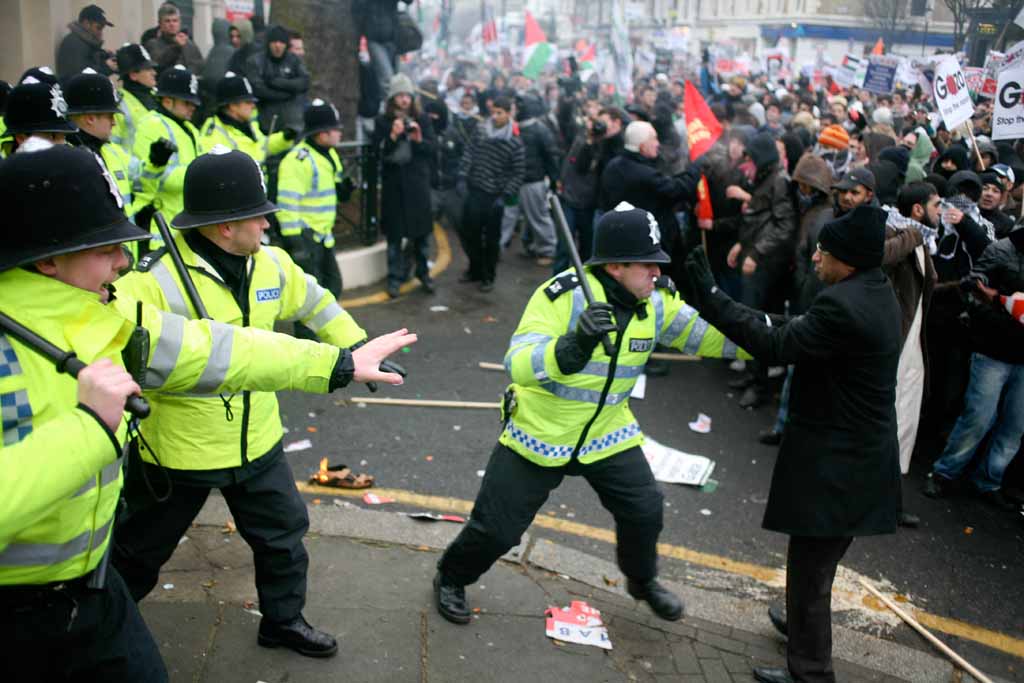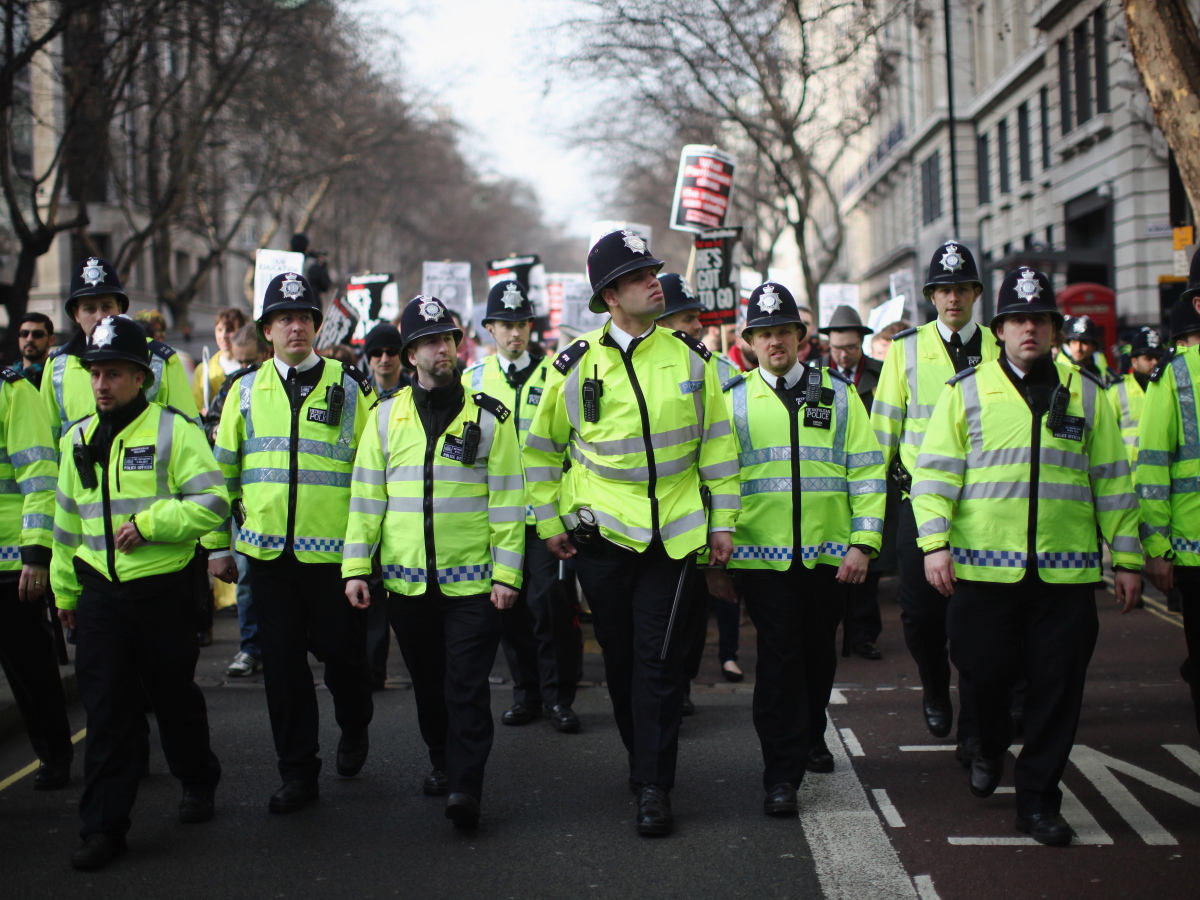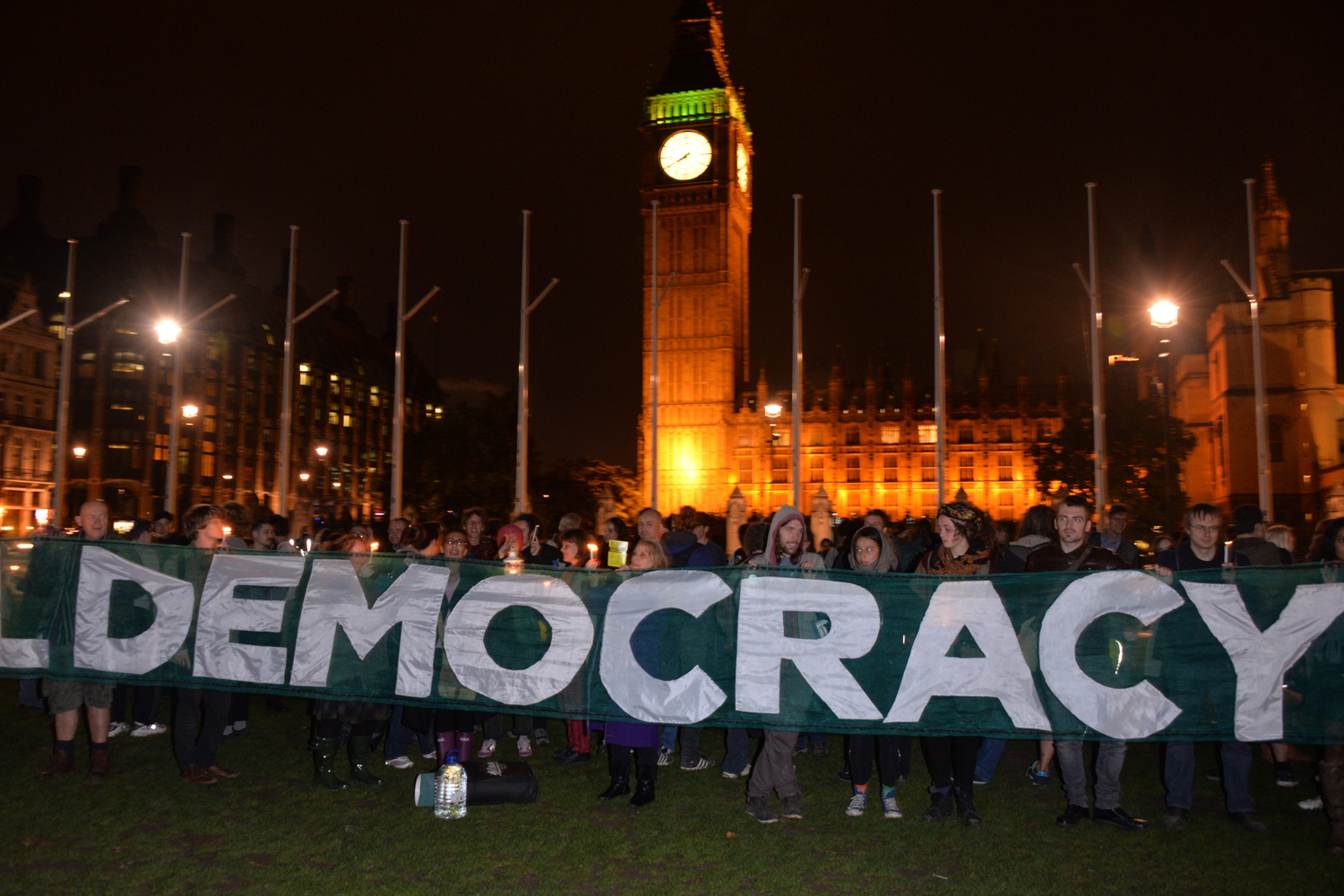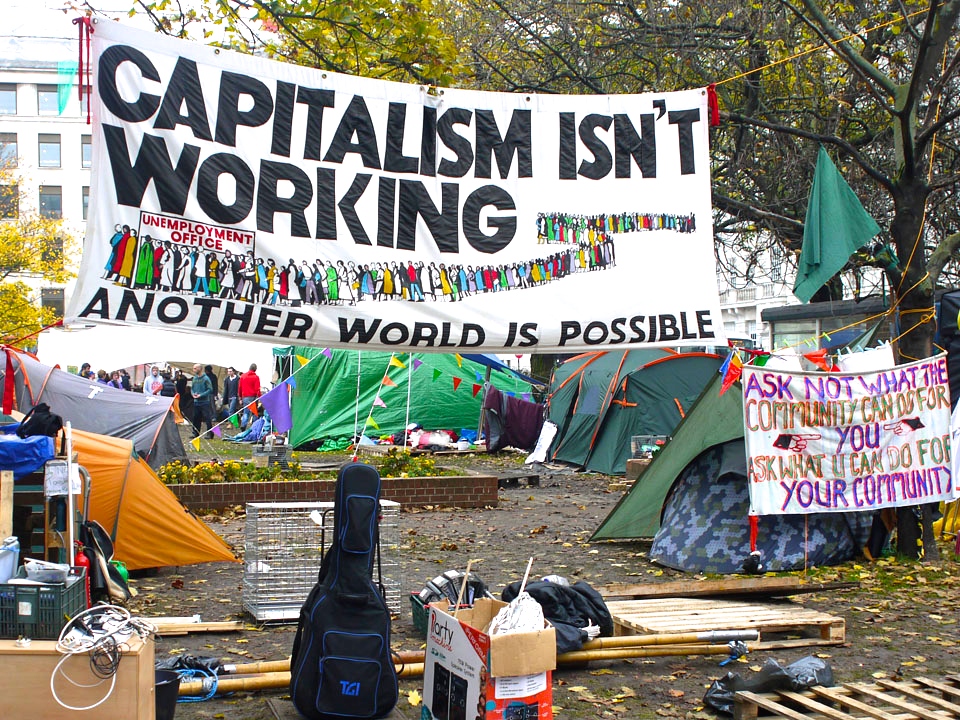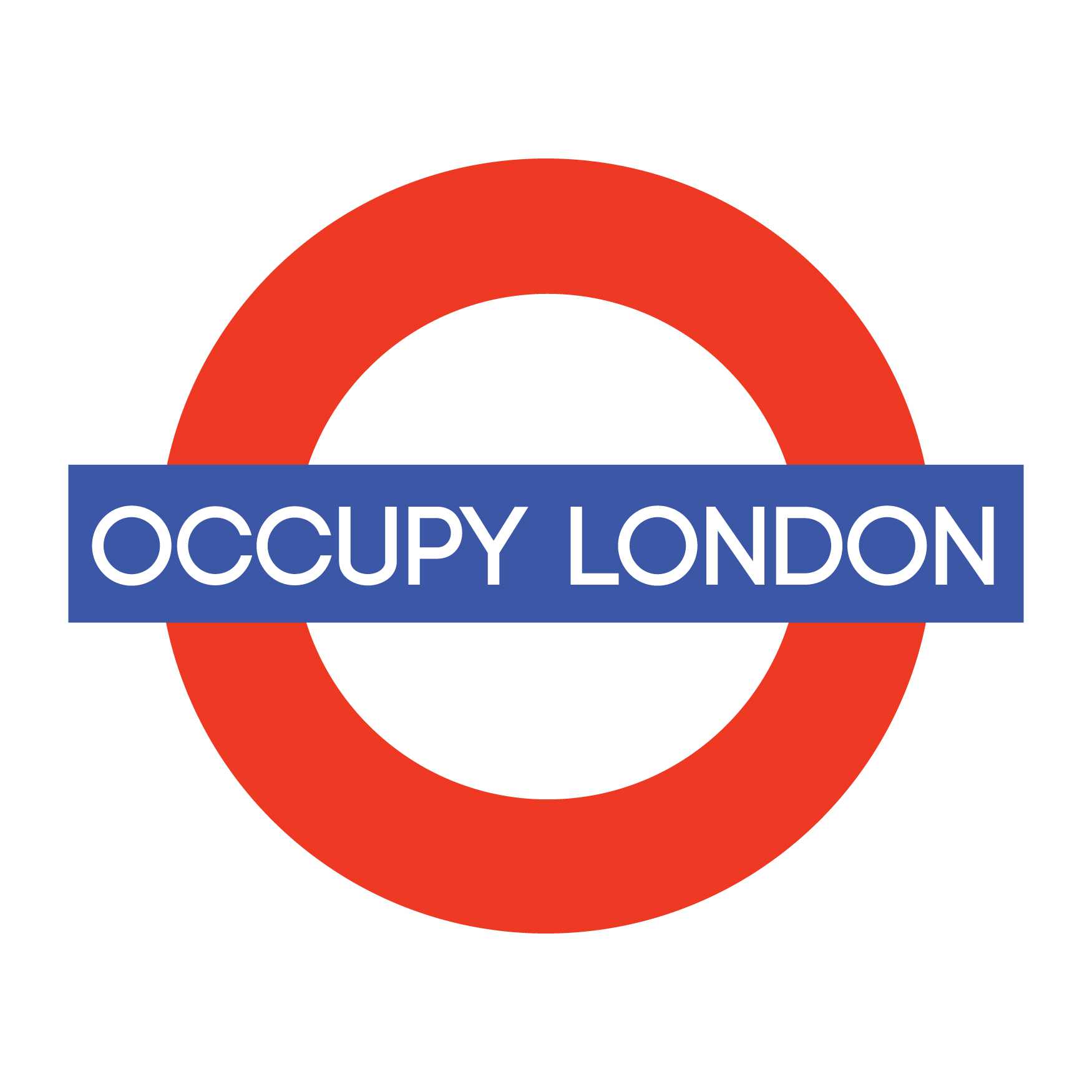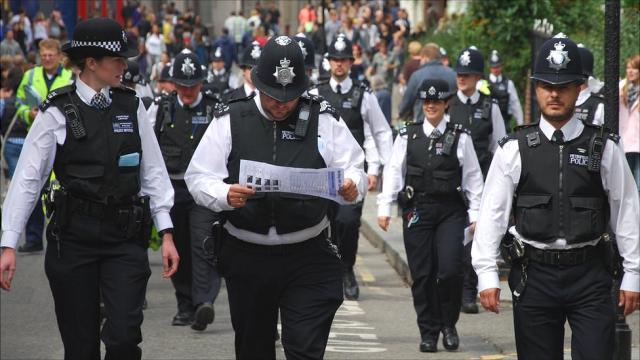
As unruly protests by New York City policemen continue to rile U.S. media, police officers in the U.K. are finding themselves on the austerity frontlines with thousands of jobs threatened in the coming years. A new report warns there could be a return to 1980s-style, emergency-based policing in Britain due to the number of police officers likely to lose their jobs.
According to a Labour Party analysis of figures compiled by the House of Commons library, if the full range of planned cuts are introduced, between 1,300 and 5,200 officers from the Metropolitan police, the U.K.’s largest police force, could be made redundant by the end of the decade.
The Commons library assessment was made by Gareth Thomas, a Labour politician and Member of Parliament in London. Speaking of the effect the planned cuts would have on the U.K., Thomas said:
“George Osborne’s plans for cuts in Metropolitan police funding… would have a devastating impact on the quality of policing in London and be the final death knell for high visibility, bobby-on-the-beat local policing.”
A Return to 1980s-Style Policing
Thomas also warned that such harsh cuts to officer numbers would herald a return to 1980s-style policing in which police responded to emergencies rather than practicing the “proactive community policing” people now expect.
With fewer police on the streets, officers would have to rely on people phoning to report crime and emergency instead of the police being able to gather intelligence about potential crime activity in a community, Thomas added.
Nonetheless, this seems to be the situation with years of austerity expected ahead for Britain’s emergency services. Talking to the Guardian newspaper, Bernard Hogan-Howe, the commissioner of the Metropolitan Police, spoke about the ways that austerity cuts without reform put the public at risk.
Hogan-Lowe admitted that regardless of the outcome of this year’s general election in Britain, the Metropolitan Police would have to save £1.4 billion ($2.1 billion) – approximately a third of its budget – in the next decade.
Throughout last year, Occupy.com reported on the escalating cuts being forced upon vital U.K. services, and the uproar and militancy that such punitive austerity measures have provoked. For example, in May of 2014, firefighters across England and Wales took to the streetsin protest against pension reforms and the forced closure of fire stations throughout the U.K.
Last January, 10 stations in London alone were closed resulting in 550 firefighters losing their jobs – a result of London Mayor Boris Johnson’s £29 million cost-cutting plan.
The outrage ignited by the forced job cuts made to Britain’s emergency fire services echoed protests in response to cuts made to another vital service – the National Health Service (NHS).
As Occupy.com reported last June, British healthcare has experienced an outrageous decline as a result of austerity cuts and privatization. Since the coalition government came to power in 2010, £20 billion has been cut from state healthcare, resulting in compulsory redundancy for 4,620 frontline medical staff between 2010 and 2011.
The tough austerity measures forced on Britain’s firefighters and health service staff sparked public outrage. In fact, throughout 2014 the country was awash with protests about job losses in the vital public sector jobs as Britain’s harsh climate of austerity continued to bite.
Policing in the U.K.
Now a crucial question arises: do the people of Britain show similar levels of sympathy as police enter the austerity frontlines? One can't ignore the events in recent years that heralded new levels of conflict and antagonism between the U.K. police and citizens.
Public misgivings over the U.K. police system pinnacled in August 2011 when Mark Duggan was fatally shot by an officer of the Metropolitan Police Service in Tottenham, London. The Metropolitan Police stated they were attempting to arrest Duggan on suspicion that he was planning an attack and was in possession of a handgun.
But the killing of the 29-year-old London resident led to protests and conflict with the police in London, fueled by racial and poverty tensions. The conflict quickly escalated into riots throughout other English cities. The Duggan shooting is widely viewed as the trigger of the 2011 English riots, which resulted in a wave of looting and mass police deployment.
Three years before the Duggan shooting, Sean Rigg, a 40-year-old black musician who had suffered from paranoid schizophrenia, died while in police custody. In August of 2008, Rigg died while under the supervision of police at the entrance of the Brixton, London police station. Similar to the Duggan case, Rigg’s death became a foundation for civil rights campaigners in the U.K. who called for “improvement and change on a national level” regarding deaths in police custody.
The resentment that many in the U.K. still feel towards such policing tactics has by no means abated, as seen last November when hundreds took to the streets of London in solidarity with the anti-police brutality protests occurring in Ferguson, Missouri, following the police killing of the unarmed black teen Michael Brown. The relatives of both Duggan and Rigg joined the London protest, which took place outside the U.S. embassy.
At the protest, Carole Duggan, Mark Duggan’s aunt, spoke of the injustice in the U.K. police system.
“Mark Duggan has not got justice and neither has Mike Brown. The police should be there to protest us, not kill our children,” she said.
The crackdown on Occupy
That same month, scuffles broke out with police when Occupy London activists attempted to set up camp in Parliament Square. Demonstrators formed a barrier around the square, chanting “The police should be helping us” and holding banners that read “Real Democracy Now.”
November’s confrontations in Parliament Square followed clashes with police a month earlier, when Occupy supporters stood their ground for nine days in a protest known as Occupy Democracy.
Amid all the commotion, police have now become the latest service to be put on the austerity frontlines in Britain – and the less than glowing relationship between the police and those who dissent against their policing tactics means widespread empathy with their cause may be unlikely. Some U.K. citizens might not even be averse to seeing a change in the current “proactive community policing” model currently practiced in the country.
As 38-year-old Tim Painter of Manchester told Occupy.com, “Bernard Hogan-Howe might speak of how cuts without reform will put the public at risk. But it seems the public are at risk from the police anyway.”
3 WAYS TO SHOW YOUR SUPPORT
- Log in to post comments

